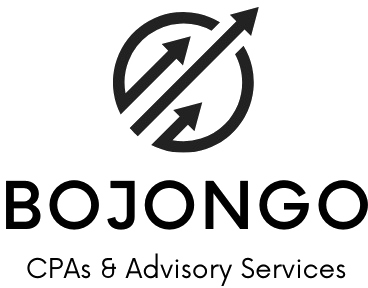
S-Corp Formation
What is an S-Corp?
An S-Corporation is a small business corporation. The S-Corp election allows the owner(s)/shareholder(s) to only be taxed at the individual level instead of at both the corporate and individual level. We’ll go over an example of this below.
Advantages of an S-Corp
The big advantage of the S-Corp status is a tax concept called pass-through taxation. Pass-through taxation means that your company isn’t taxed on the income it generates. Instead, this income can be distributed to the owner(s)/shareholder(s).
Another important advantage is the limited liability protection for owners and shareholders. There is an extra layer of security for your personal assets in the event your company is dissolved or is being sued.
Your company can attract investors through the sale of shares of stock, giving you investment opportunities for the continued growth of your business.
Your business will continue to exist even if the owner leaves, retires, or dies.
Disadvantages of an S-Corp
There is additional paperwork and fees involved. It is necessary to incorporate the business by filing Articles of Incorporation with your state, obtain a registered agent for your company, and pay the appropriate fees. Many states also impose ongoing fees, such as annual report or franchise tax fees. These fees are typically minimal and in most cases, you will recoup the amount you paid in fees with tax savings.
Because the S-Corp status allows for distributions to a shareholder, the IRS scrutinizes payments to make sure the characterization conforms to reality.
If the company tax status is compromised by either non-resident stockholder or stock being placed in the corporate entity name, the IRS will revoke the status, charge back-taxes for 3 years, and impose a further 5-year waiting period to regain the tax status.
S-corp owners are required to pay themselves a “reasonable salary” as employees and that salary is subject to payroll taxes.
What is pass-through taxation?
Here is an example of how pass-through taxation works for an S-Corp:
Mark is the owner of an E-commerce business which generates $100,000 in profit. Mike formed an LLC to operate his business, and she has elected to have it taxed as an S Corporation. Mike is an employee of the LLC and receives a $40,000 salary. The remaining $60,000 of the business’s profits are passed through the S corporation and reported as S corporation profit on Mike’s personal income tax return, not as employee salary. Because this $60,000 profit is not viewed as employee wages, neither Mike nor his company needs to pay Social Security or Medicare tax on this amount. Mike and his corporation only pay a total of $6,120 in employment taxes (15.3% x $40,000 = $6,120). Then, Mike just has to pay income tax on the S-corporation profit of $60,000. Had Mike not elected S corporation status for her LLC, she would have had to pay self-employment tax and income tax on this entire $100,000 profit. This would have required her to pay an additional $9,180 in Social Security and Medicare tax.
| Estimated Tax Savings | ||
| Business Structure | Sole Proprietor | S-Corp |
| Yearly net income for the business | $100,000 | $100,000 |
| Your reasonable salary | $40,000 | |
| Self Employment Taxes | ||
| Social Security Tax (12.4%) | $12,400 | $4,960 |
| Medicare Tax (2.9%) | $2,900 | $1,160 |
| Total Tax | $15,300 | $6,120 |
| Estimated Tax Savings | $9,180 | |
What is a reasonable compensation for an S-Corp?
There are several factors to take into account when determining a reasonable compensation for an owner/shareholder.
- The employee’s qualifications.
- The nature, extent, and scope of the employee’s work.
- The size and complexity of the business.
- A comparison of salaries paid with the gross income and net income of the business.
- The prevailing general economic conditions.
- A comparison of salaries with distributions (or dividends) to stockholders.
- The prevailing rates of compensation for comparable positions.
- The salary policy of the taxpayer to all employees.
- The amount of compensation paid to a particular employee in previous years.
How do I apply for S-Corp status?
- Choose and reserve a legal name. Many states allow you to reserve a legal name with the Secretary of State.
- Draft and file an Articles of Incorporation.
- Prepare the corporate bylaws to summarize company rules surrounding operations, officer positions and duties. Keep corporate minutes of all board and shareholders meetings.
- Issue stock certificates to the initial shareholders.
- Apply for an Employer Identification Number (EIN) by preparing and submitting an IRS Form SS-4.
- Depending on what type of corporation you are starting, you may need both state and local permits to operate legally. File the IRS form 2553 within 75 days of your corporation formation.
Can you help me become an S-Corp?
We’ve assisted many small business owners across the United States in achieving an S-Corp status, and we’d love to assist you as well. Please feel free to contact me *Calendly Insert if you’re looking for some expert help on making the switch.
S-Corp Election Package
$1,000
One Time Fee
30 Minute Consultation
One-on-one phone call to discuss the S-Corporation process and determine if it’s the best fit for your business. You will be emailed a detailed summary of notes after the call.
S-Corp Reasonable Compensation Report
The S-Corp Reasonable Compensation Report synthesizes a proprietary blend of IRS criteria, Court Rulings, geographic data and a database of wages to accurately assess Reasonable Compensation for S-Corp and Small Business Owners.
S-Corp Accountable Plan
You will be provided with an accountable plan template and instructions. An accountable plan follows IRS regulations for reimbursing workers for business expenses in which reimbursement is not counted as income (home office, mileage, business use of cell phone, etc.). This means that reimbursements are not subject to withholding taxes or W-2 reporting.
Payroll Setup
As an employee of the S-Corporation you will need to be on payroll. We will walk you through the process of setting up and running payroll.
Federal Tax ID Number (EIN)
A Federal Tax ID Number is used to identify a business entity and will be used to open your business bank account and hiring employees.
S-Corp Election Form
An S-Corp election form will be prepared for you. Once the form has been prepared and reviewed we will file the form with the IRS and will provide you with a confirmation.
